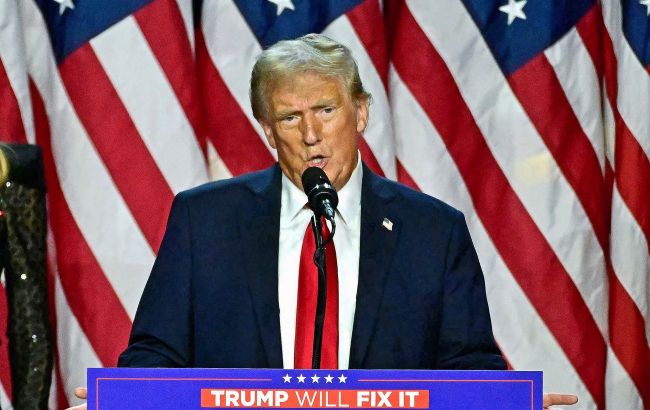Taiwan's government secretly congratulates Trump on presidential win - CNN
 Photo: US presidential election winner Donald Trump (flickr.com)
Photo: US presidential election winner Donald Trump (flickr.com)
This week, the Taiwanese government secretly delivered a letter to newly elected US President Donald Trump. The congratulatory note, acknowledging his election, reflects a cautious stance in relations with the White House leader, according to CNN.
The letter was handed to a former Trump administration official during a private luncheon.
This covert letter delivery sharply contrasts with a controversial phone conversation between Trump and Taiwan's president following the 2016 election. That call stunned the world, as it disrupted the long-standing US policy toward Taiwan.
Both letter deliveries aimed to congratulate the new president. However, the differing approaches reveal that Taiwan, like many other nations, is taking a different approach with Trump than in the past, striving to develop a measured relationship with the new president in the early days after his electoral victory.
“Last time, the perception among some was that Taiwan sort of took advantage of Trump by getting him on the phone and upending decades of US policy where incoming presidents do not to speak to Taiwan given the US respect for the one-China policy,” said a former Trump administration official.
However, former Trump officials noted that these contrasting actions also highlight that the president-elect's transition team is taking a more deliberate approach toward the new White House leader's conversations with global leaders during this transitional period.
Sources told CNN that Trump had not directly contacted the Taiwanese government after winning the election. However, they added that a call between the Taiwanese leader and Trump remains possible during the transition period.
Taiwan’s political status
Since 1979, the US has operated under the Taiwan Relations Act, which formalizes cooperation across many areas but does not establish formal diplomatic relations due to the island state's disputed political status — a claim over which China asserts control.
In early December 2016, then-President-elect Trump spoke directly with then-Taiwanese President Tsai Ing-wen, marking the first such interaction in decades.
China responded to this conversation with restrained disapproval, with the foreign minister calling it a “petty move by Taiwan.”
Beijing views Taiwan as a province and seeks to reintegrate the island with mainland China through diplomatic and military pressure.
Taiwan operates as an independent state with its own government, economy, and military, though it has not officially declared independence to avoid escalation with Beijing. In 2022, the Taiwanese government adopted a policy to strengthen ties with Western nations.
China, however, has continued to threaten the island nation with military invasion and occupation. During Joe Biden’s presidency, the US pledged to provide military assistance to Taiwan if China invaded, heightening the risk of a direct confrontation between the two global powers.
US presidential election
In the US presidential election on Tuesday, November 5, Republican candidate Donald Trump secured a decisive victory over his Democratic opponent, Kamala Harris.
At his first rally following the election, Trump pledged to end all wars worldwide.
He also vowed to intensify sanctions against Iran to bring an end to the Middle East conflict.
President Volodymyr Zelenskyy has already discussed further cooperation with Trump in a phone call.
Meanwhile, the United Nations expressed concerns over Trump’s election as US president.
Read more about expectations from the new US president in RBC-Ukraine's article.

